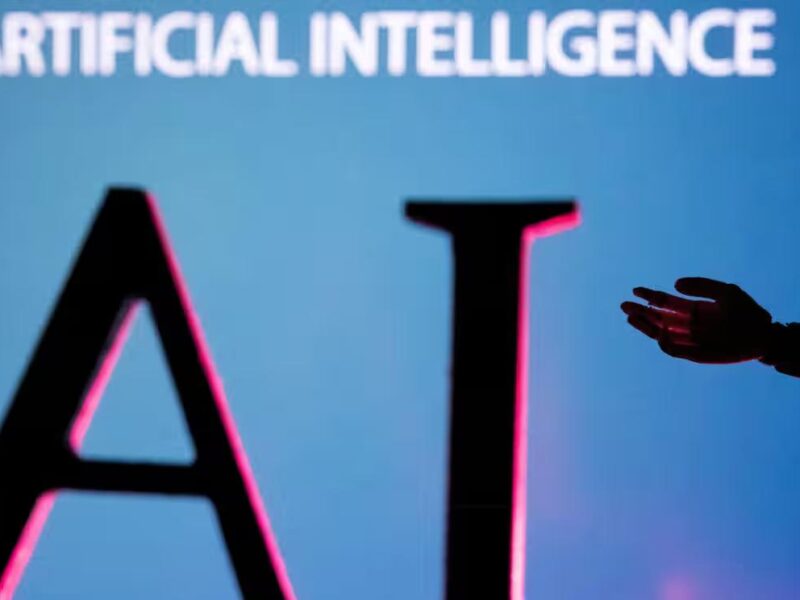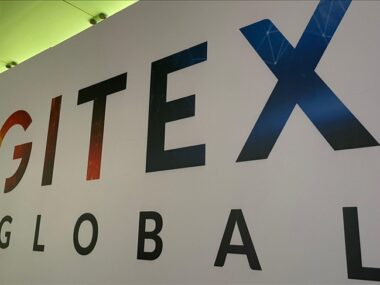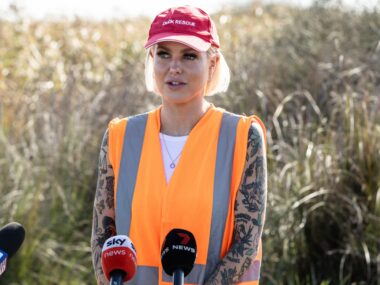The World Economic Forum warns of the potential of electoral meddling this year. The United Kingdom and the United States will vote.
According to the World Economic Forum (WEF), the biggest short-term threat to the global economy is a tsunami of artificial intelligence-driven misinformation and disinformation that might impact major upcoming elections.
In a highly pessimistic assessment, the organization that will gather in Davos next week expressed concern that the spread of false information might disrupt politics, perhaps leading to riots, strikes, and government crackdowns on dissent.
According to the WEF’s annual risks study, which polled 1,400 experts, 30% of respondents believed there was a high probability of a global catastrophe in the next two years, with two-thirds terrified of a catastrophic occurrence within the next decade.
Concerns about the ongoing cost of living crises, as well as the interconnected hazards of disinformation and polarized communities, dominated the WEF’s outlook for 2024.
This year’s elections will take place in nations that account for 60% of global GDP, including the United Kingdom, the United States, the European Union, and India, and the World Economic Forum predicted that the link between misleading information and societal dissatisfaction will take center stage during campaigns.
Misinformation is information that is erroneous or inaccurate, whereas disinformation is intentionally deceptive content that can be used to promote propaganda and instill fear and distrust.
Looking ahead a decade, the experts polled by the WEF, which conducts its annual conference in Davos, Switzerland, selected extreme weather events and climate change as the most significant dangers.
“An unstable global order characterised by polarising narratives and insecurity, the worsening impacts of extreme weather and economic uncertainty are causing accelerating risks – including misinformation and disinformation – to propagate,” said Saadia Zahidi, managing director of the World Economic Forum.
“World leaders must come together to address short-term crises as well as lay the groundwork for a more resilient, sustainable, inclusive future.”
The analysis, created in collaboration with Zurich Insurance and the professional services firm Marsh McLennan, ranks risks across two and ten years.
Misinformation and disinformation, extreme weather occurrences, societal polarization, cyber vulnerability, and interstate armed conflict are seen as the five greatest hazards in the short term.
“Artificial intelligence breakthroughs will radically disrupt the risk outlook for organizations, with many struggling to react to threats arising from misinformation, disintermediation, and strategic miscalculation,” said Carolina Klint, Marsh McLennan’s chief commercial officer in Europe.
“It will take a relentless focus to build resilience at organisational, country and international levels – and greater cooperation between the public and private sectors – to navigate this rapidly evolving risk landscape.”
Klint stated that AI exacerbated the threat of widespread deception and misinformation, which might call into doubt the legitimacy of elected governments. She noted that hostile powers and domestic players were likely to target voters.
Longer-term threats include extreme weather events, fundamental changes to earth systems, biodiversity loss and ecosystem collapse, natural resource scarcity, and misinformation and disinformation.
Two-thirds of those asked were concerned about extreme weather events in 2024, but opinions on the severity of the risks differed. According to the survey, private sector respondents anticipated that most environmental concerns would manifest over a longer timeframe than civil society or government, indicating a growing risk of passing a point of no return.
“This is a very bleak outlook, but it is not a prediction of the future,” Zahidi said. The future is entirely in our hands.”











